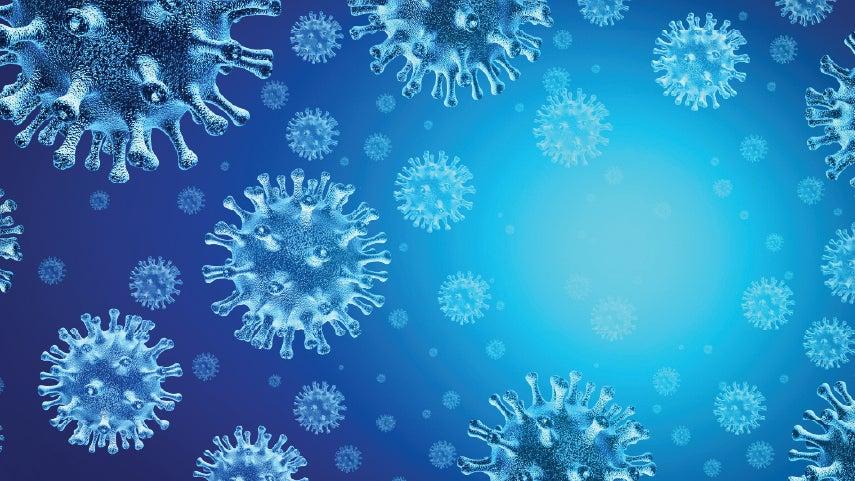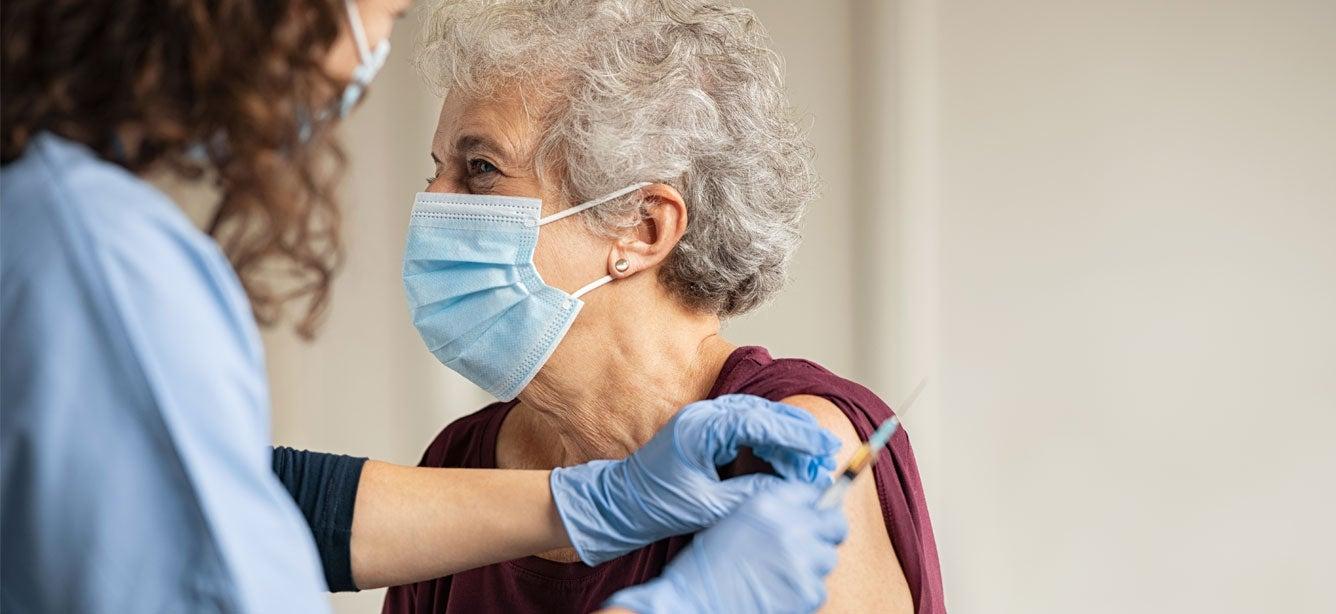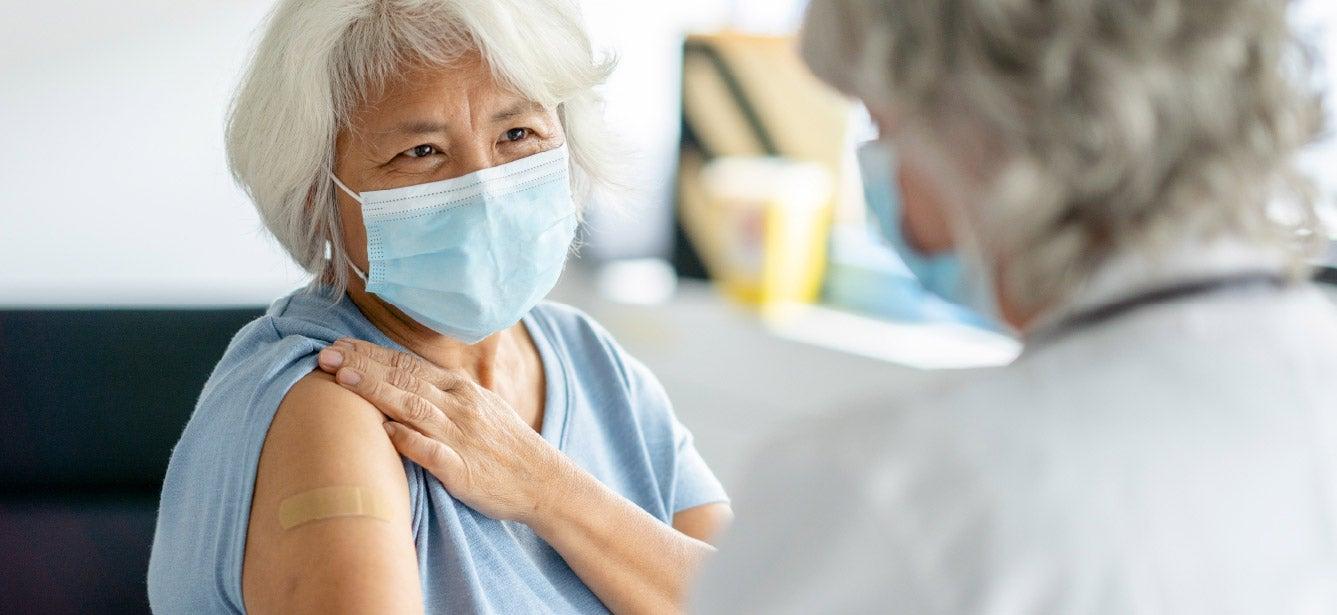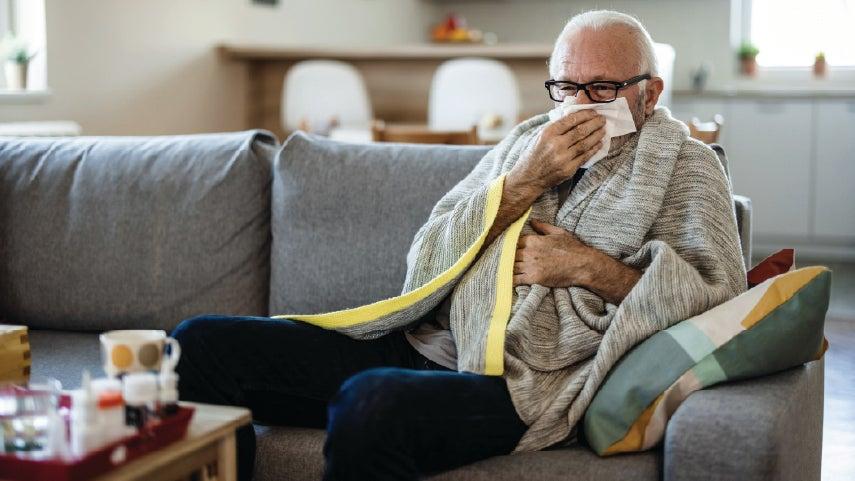Is RSV Contagious in Adults? What to Know About Transmission and Protection
7 min read

Related Topics
A few days after spending time with her 2-year-old grandson who had cold symptoms, Debbie started feeling unwell herself. "It was a few days after that that I got sick with a high fever, a nasty cough, and I just didn’t feel right," she explained. "I went to the local ER. When the ER doctor told me I had RSV, the first thing out of my mouth was, 'But, I’m an adult!' I had no idea that an adult could get RSV."
Debbie isn’t alone in her perception—many people associate respiratory syncytial virus (RSV) with young children. While it’s often linked to infants and toddlers, RSV can also cause serious illness in older adults, especially those with certain health conditions.
So, how does RSV spread—and what can you do to protect yourself and those you care about? Let’s take a closer look.
What is the respiratory syncytial virus (RSV)?
RSV is a common respiratory virus that affects the nose, throat, lungs, and breathing passages. Almost everyone gets it at least once in their lifetime, usually as an infant or toddler. But adults can get it, too.
For most healthy adults, RSV causes mild, cold-like symptoms that fade away in a week or two. But for older people, especially those age 75 or older and those with chronic disease, RSV can lead to complications like pneumonia.
“RSV infections in adults can trigger acute myocardial infarction, stroke, and can exacerbate asthma and chronic cardiopulmonary disease, or COPD,” Atlanta-based internal medicine physician Sandra Fryhofer, MD told the American Medical Association (AMA). “RSV infection rates are nearly two times higher in patients with COPD as compared to others.”
Since it can look a lot like other respiratory illnesses, RSV often flies under the radar. That’s why it’s essential to understand how contagious this virus is and how to prevent it.
Is RSV contagious?
Yes, RSV is very contagious, particularly during its peak season (October through March). Like a cold or flu, it spreads easily from person to person. The RSV virus can live on hard surfaces for several hours, and on hands for about 30 minutes. That means it’s easy to pick up without realizing it.
How is RSV spread? According to the Centers for Disease Control and Prevention (CDC), RSV spreads in everyday situations, such as:
- When someone with RSV coughs or sneezes near you, and their virus-filled droplets get into your eyes, nose, or mouth
- Being in close contact with an infected person—such as hugging, shaking hands, or sharing food or drinks
- Touching a surface contaminated with the virus—such as a doorknob, remote control, phone, or countertop—and then touching your face before washing your hands
How long is RSV contagious?
Most people with RSV are contagious for about three to eight days. But older adults and people with weakened immune systems may spread the virus for several weeks, even after they start to feel better.
You can also be contagious a day or two before RSV symptoms appear, which makes it harder to avoid passing the virus to others.
What are the first signs of RSV in adults?
For most healthy adults, RSV initially feels like a mild cold. Typical symptoms include congestion, cough, fever, sore throat, mild headache, and fatigue. As the illness progresses, symptoms tend to move to the lower respiratory tract and may include wheezing, shortness of breath, and a more severe cough.
Health care providers usually diagnose RSV by assessing symptoms and doing a physical exam. In some cases, they may use a quick mouth swab or blood test to confirm it.
How long does RSV last?
RSV symptoms generally last one to two weeks. But in older people, fatigue and coughing may persist for several weeks. If you experience lingering symptoms, it’s important to rest and stay well-hydrated. You should also avoid exposure to smoke or strong fumes that can irritate your lungs.
Should your RSV symptoms last longer than expected or seem to worsen, it’s a good idea to reach out to your health care provider for advice.
Is there a vaccine for RSV?
Yes. Three RSV vaccines are currently approved by the U.S. Food and Drug Administration (FDA) for use in adults. CDC recommends a single dose of the vaccine for all adults age 75 and older and adults age 50 to 74 who have a high risk for severe RSV disease.
Getting vaccinated helps lower your risk of serious RSV illness, hospitalization, and death. It’s especially a priority if you have a condition like chronic heart, lung, or liver disease—or you live in a nursing home or other long-term care facility where viruses can spread rapidly.
You may be able to get your RSV shot at your doctor's office, your workplace, local pharmacies, and vaccine clinics in your area. And if you have Medicare or Medicaid, the vaccine should cost you nothing out of pocket.
What can help prevent the spread of RSV?
Just like with the flu or COVID, there are easy, effective ways to protect yourself from RSV and reduce the chance of spreading it to others.
Here are some precautions you can take:
- Wash your hands often: Handwashing is one of the most powerful tools for preventing the spread of germs. Use soap and clear, running water for at least 20 seconds, especially after touching shared surfaces or being out in public. Use alcohol-based hand sanitizer when soap is not available.
- Avoid close contact with people who are sick: Is it ok to be around someone with RSV? It’s best to avoid a person with a confirmed RSV infection. If you can’t keep your distance, wear a well-fitting mask when indoors and don’t share utensils, food, cups, or towels with that person.
- Regularly clean and disinfect frequently touched surfaces: This includes doorknobs, cabinet and appliance handles, phones, toys, and light switches.
- Cover coughs and sneezes: Make it a point to cover your mouth and nose with a tissue or your elbow when coughing or sneezing—and urge others to do the same. Wash your hands afterwards.
- Stay home when you’re sick: You may be wondering, Do I need to isolate if I have RSV? The answer is yes. Aim to rest and steer clear of other people as much as possible until your symptoms have resolved.
- Mask up: Consider wearing a mask in crowded indoor spaces during RSV season. The best mask is one that fits snugly but comfortably around your nose and mouth.
- Take steps to keep your air clean: Open windows to let fresh air in (if the weather allows) or use an air purifier. Hold your social gatherings outdoors whenever practical.
- Don’t smoke or vape: Avoid smoking and secondhand smoke – it irritates the lungs and may increase infection risk.
- Get vaccinated: If you’re 75 or older, or 50-74 with severe RSV risk factors, talk to your pharmacist or your doctor about receiving the RSV vaccine.
Tips for caregivers
If you’re caring for an older adult with RSV—or trying to prevent transmission in your home—keep these tips in mind:
- Encourage handwashing, using hand sanitizer, and good hygiene for everyone in the household.
Avoid or limit visits from people who have cold-like symptoms. - Keep frequently touched items (like phones, doorknobs, and TV remotes) clean and sanitized.
- Watch the person you care for closely for breathing difficulties, changes in appetite, or increased fatigue.
- Have a plan to contact a health care provider if their symptoms worsen.
Your vigilance can help protect the health and comfort of your care recipient (as well as your own).
Simple steps can protect you, and those around you
RSV is a highly contagious illness responsible for hospitalizing roughly 110,000-180,000 older Americans every year.1
But the spread of RSV is preventable. Basic precautions can go a long way in keeping you and your family healthy.
"Many people think RSV only affects babies, but it can actually hit older adults hard—especially if you have heart or lung issues,” said Dorothea Vafiadis, Senior Director of NCOA's Center for Healthy Aging. “The vaccine is a simple way to reduce severe illness and avoid ending up in the hospital with a dangerous respiratory infection. If you're over 75 or at high risk for complications, it's worth having a conversation with your doctor about it."
Source
1. Centers for Disease Control and Prevention (CDC). RSV in Adults. Updated July 8, 2025. Found on the internet at https://www.cdc.gov/rsv/older-adults/




